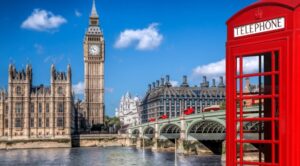Key Moments:
- The Texas Supreme Court has decided not to review the appeal regarding Dallas poker rooms’ permits.
- Over $500,000 in public funds have been spent by Dallas on legal fees in the dispute.
- The court decision allows Texas Card House and other clubs to continue operating, but the broader legal status of poker rooms remains uncertain in Texas.
Legal Battle Over Poker Room Permits
Dallas-based poker clubs will continue their operations after the Texas Supreme Court opted not to consider the city’s appeal. This move preserves the permits for venues such as Texas Card House, whose legal standing had faced challenges by city officials.
Background of the Dispute
The conflict began when Dallas initially issued permits to poker establishments in 2020 following discussions with operators. After two years, the city reversed its stance, claiming it had erred in issuing those approvals and subsequently attempted to force the clubs to shut down. Texas Card House contested the decision with the city’s Board of Adjustment, which ultimately upheld the club’s occupancy permit. Andrew Espinoza, Dallas’ former chief building inspector, then filed a lawsuit challenging the board’s decision and the club’s operation, resulting in a situation where the city effectively sued itself.
Yesterday was a tremendous victory for poker in the state of Texas.
After years of fighting in court, the Texas Supreme Court has DENIED the city of Dallas's attempts to close a poker room there.
This ruling was the biggest possible win to protect our right to play poker.… pic.twitter.com/gGdndDaeYd
— Doug Polk (Code Doug) (@DougPolkVids) September 6, 2025
Court Rulings and Rising Legal Costs
A district court initially sided with Espinoza, but the decision was overturned by the Fifth Court of Appeals in Dallas in 2024. The appellate court ruled that the Board of Adjustment’s determination should have been respected by the lower court. With the Supreme Court refusing to hear the appeal, the appellate court’s decision is now final.
The legal process has been costly for the city, with more than $500,000 in public funds allocated to hire external legal teams to represent both sides of the intra-city dispute. This level of expenditure sparked concern among some council members, particularly since the matter directly affected businesses contributing revenue to Dallas, yet left them in ongoing operational limbo.
| Event | Year | Outcome |
|---|---|---|
| Permits issued to poker clubs | 2020 | Clubs receive city approval |
| City attempts to revoke permits | 2021 | Card rooms told to close |
| Board of Adjustment hearing | – | Permit reinstated |
| District court ruling | – | City prevails |
| Fifth Court of Appeals decision | 2024 | Poker room permit upheld |
| Texas Supreme Court action | – | Declines review |
Ongoing Uncertainty for Texas Poker Clubs
While the current verdict allows Texas Card House and Shuffle 214 to remain in business, the underlying question of whether social poker clubs comply with Texas law is still unresolved. The legal gray area persists, with establishments like Champions Social Club in Far North Dallas continuing to seek city approval for their operations. For now, the recent decision maintains the status quo for several Dallas-area clubs, but broader regulatory issues linger for the industry throughout the state.
- Author


